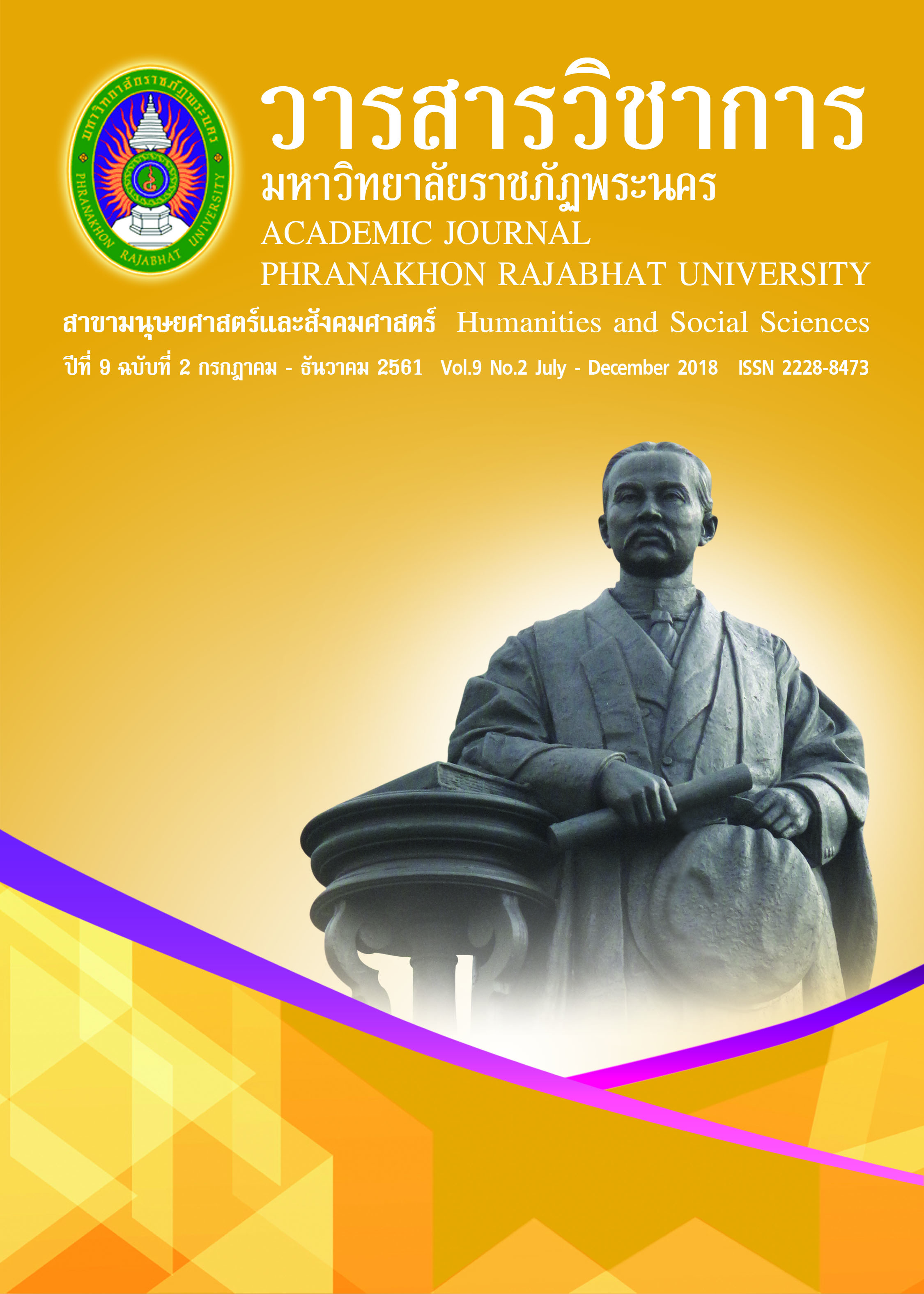A STUDY OF THE TEACHER'S ROLE IN STUDENT DEVELOPMENT BY CCRP MODEL
Keywords:
teacher’s role, Student Development, CCRP modelAbstract
The purpose of this research was to study of the teacher’s role in student development by CCRP model. The populations were the fourth-year student of the college of teacher education. The research tools consisted of CCRP model teachingplan and evaluation of the teacher’s role by student forms. The data were analyzed by percentages. The results indicated: the student’s opinions about the teacher’s instruction according to the assessment indicators of teacher’s role in student development by CCRP model was very good (82.84). The mean score of the objective assignment was at 95.01. The instructor clearly informed the students the issues for assessing and the criteria for measuring and evaluating in the course before the class was 100.
The learning objectives of the course was informed before the class was at 94.01. The teaching design was at 86.76. In the teaching role of instructor, the top rated one was the instructor used the cooperative group activities to organize learning activities at 100. The instructors evaluated the student learning processes (e.g. the process assessment and operational procedures, both preparatory and conclusive) was the second at
99.40. The instructors observed the students’ behavior during the class, the students were reflected on their thoughts and feelings after the class was at 99.40. So it can be assumed that the teacher’s role in student development by CCRP model is productive and effective in every item.
References
Kirirat, P. (2011). Teaching teachers to do research Songkhla. Bangkok: Bureau of Rubber Research Project. (in Thai)
Poolpatarachewin, C. (2012). Crystallization and explosion, psychic experience, vision and intellectual practice. Bangkok: Matichon Newspaper. (in Thai)
Phanthalert, C. (2006). Development of academic mentors’ coaching competency enhancement process using experiential learning in school-based training. Doctor of Philosophy thesis, In Curriculum and Instruction College, Chulalongkorn University. (in Thai).
Panich, V. (2012). The way to create lessons for 21st century disciples. Bangkok: National Library of Thailand Cataloging in Publication Data. (in Thai)
Panich, V. (2016). Life is a teacher to the learning community. Bangkok: SR printing master products. (in Thai)
Prasertsan, T. (2012). Research Projects: New Learning Processes of Thai Education. Bangkok: Thailand Research Fund. (in Thai)
Toonthong, S. (2015). Research and development of teacher development process with continuous support system to promote 21st century skills of Lopburi students.
Bangkok: Faculty of Education, Thepsatri Rajabhat University. (in Thai)
Thachakup, P. (2015). Learning Management in the 21st Century. Bangkok: Chulalongkorn Book Center. (in Thai)
Downloads
Published
How to Cite
Issue
Section
License
"บทความวิชาการในวารสารฉบับนี้ ถือเป็นความรับผิดชอบของผู้เขียนเท่านั้น"
สงวนลิขสิทธิ์ตามพระราชบัญญัติลิขสิทธิ์



